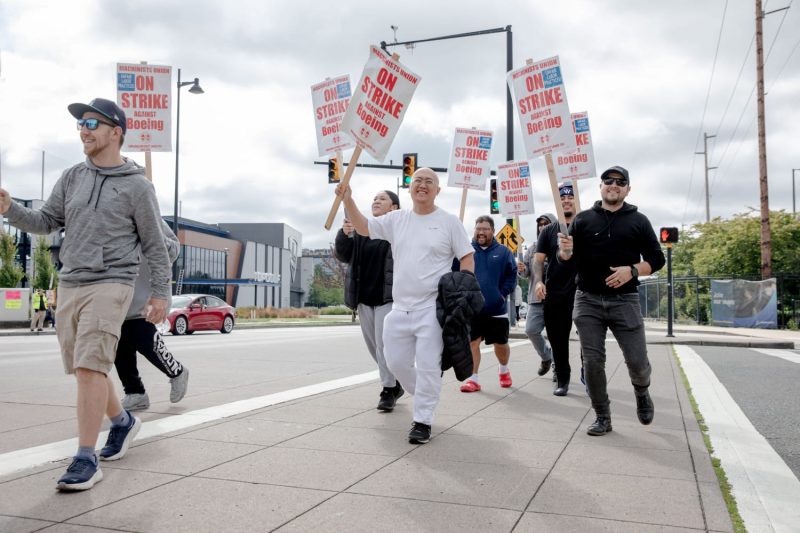Boeing, a well-known aerospace company, recently announced its decision to furlough tens of thousands of employees in response to the ongoing machinist strike. This move comes amidst the company’s efforts to navigate through turbulent times caused by the labor dispute. Boeing, which has a long history of producing aircraft and defense systems, now finds itself in the midst of a challenging situation that has forced it to take drastic measures.
The decision to furlough its workforce is a significant one for Boeing, as it affects not only the employees themselves but also the company’s overall operations. With tens of thousands of workers being placed on unpaid leave, the production and delivery schedules of Boeing’s aircraft and defense products are likely to be impacted. This could potentially lead to delays in fulfilling orders, which in turn may affect the company’s financial performance and reputation in the industry.
The machinist strike that triggered these furloughs reflects deeper issues within Boeing’s labor relations and organizational structure. The conflict between the company and its workers highlights the challenges of balancing the interests of employees, management, and shareholders in a complex and competitive industry. Boeing, like many other large corporations, must grapple with the delicate task of maintaining a harmonious relationship with its workforce while striving to remain competitive and profitable in a global market.
The impact of Boeing’s furloughs goes beyond the immediate financial implications for the company and its employees. It also raises questions about the broader implications for the aerospace industry as a whole. With one of the major players in the industry facing such challenges, stakeholders across the sector are likely to take note and assess their own strategies for handling labor disputes and maintaining operational stability.
As Boeing and its employees navigate through this period of uncertainty, it is essential for all parties involved to engage in constructive dialogue and seek mutually beneficial solutions. Finding a resolution to the machinist strike and mitigating the effects of the furloughs will require cooperation, communication, and compromise. Ultimately, the future success of Boeing and the aerospace industry as a whole may depend on how effectively they can address these challenges and work towards a shared vision of prosperity and stability.
